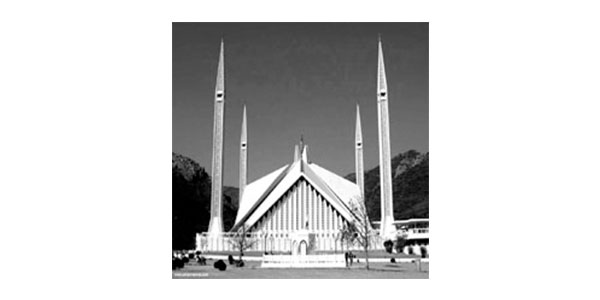Religious intolerance and our responsibilities
ISLAM is often described as a religion of peace. No doubt, it is. The Holy Qur’an and teachings of the beloved Prophet (PBUH) justify this opinion.
The life of the Prophet, his companions and ardent followers especially Sufis tells us much about their forbearance, tolerance and accommodation.
It was the humanity, amicability, and empathy of these holy Islamic personalities that helped Islam to thrive.
This nature even today inspires non-Muslims to turn to Islam. In the recent past, all Islamic scholars belonging to every sect preached peaceful Islam, however, surprisingly fundamentalism took root even within those religious circles, which once claimed to be representing ‘Sufis’.
In the sub-continent, the religious organizations, which were launched as non-violent, non-political, purely religious, and for promoting love, and harmony have undergone a radical shift.
Once claiming to be durood waley (those who recite salutations upon Prophet (PBUH) – not barood waley (those believing in arms and ammunition) now feel nothing wrong in harming Muslims with a different perspective.
The situation has deteriorated to the extent that the oft-recited verse –And We have not sent you, [O Muhammad [PBUH], except as a mercy to the worlds’ got replaced with slogans like ‘kill the blasphemer’.
In huge religious gatherings, terrifying slogans are chanted and normal Muslims fail to comprehend whether the gathering has been organized to threaten people or to call them towards Allah’s path.
The peaceful aspect and flexibility of Islam have been tucked away and pride is taken in presenting it as harsh religion, which is an aberration.
The pulpits, wherefrom voices to unify Muslims and promote inter-faith harmony would echo, are passionately used to spread hate, not only against other religions but also against Muslims of other sects.
Speaking ill about other sects, calling Muslims of other schools of thought as perverts, and instigating people to disregard others is now common and acceptable trend.
Most Muftis (Muslim legal experts), who are empowered to give rulings on religious matters and meant to guide the masses as per Shariah follow the norm and are wasting their caliber on trivial issues.
They also yearn to be within view in any way, thus unthinkable fatwas like; that orator is heathen, listening to this scholar should be avoided, and so and so cleric should be sacked from the mosque come out.
Most of these fatwas are centered on promoting personal beliefs while dismissing others’. The feature of responding to criticism with knowledge, logic and wisdom has been abandoned.
Browbeating, ridiculing and bitter criticism are the newly adopted approaches to tackle criticism.
With the increase in usage of social media, particularly YouTube, it has become a cinch to spew a stream of abuse and scorn the critics and even those having a contrasting understanding of the subject.
The extremism is not only virtual but also real. In Pakistan’s Punjab, two brothers were brutally murdered by members of other sects as the duo was at the forefront of the construction of the Ahle-hadith mosque.
In such circumstances when Muslims are not safe from this radicalism, how the safety of non-Muslim can be ensured?
That is why Pakistan’s global religious freedom ranking always disappoints. Even India, where Hindutva extremism is on the rise and common Muslims feel suffocated, also saw the cold-blood murder of a Hindu tailor at the hands of two extremist Muslim men merely for sharing a Facebook post in support of Nupur Sharma.
The fact that people who claim to be real followers of Prophet Muhammad (pbuh) and Sufi saints create a scene without caring about the sanctity of sacred places is a matter of worry.
And a secret of Polichinelle that these people enjoy the backing of other prominent clerics who for their advantage sow the seeds of discord among Muslims and divide the ummah is disturbing.
Every true follower of Islam knows very well, what Islam stands for. They are well informed about how the Last Prophet (PBUH) converted an uncivilized crowd into a proper civilization.
They remember how companions of the Last Prophet (PBUH) laid down their lives to uphold the glory of Islam.
True believers are familiar with sacrifices made by Ahle-byahh. Then came the Sufis (Awliyas), who left behind their comfort and strove to spread Islam everywhere.
From the Last Prophet (PBUH) to Sufis, all of them made every effort to teach Islam and devoted themselves to reforming society.
They taught people to live together in peace and harmony. They treated all and one alike and were profoundly tolerant. This trait influenced non-Muslims and caused Islam to spread throughout the world.
Therefore, true believers always discuss love, tolerance, moderation and harmony and are agitated by anomalies.
Clerics who are yet to understand their responsibility need to introspect.
They need to think about the afterlife and the day of resurrection – when they will be held accountable for their worldly acts.
They need to guide their followers according to the teachings of the Quran and Hadith.
Emotional followers especially youngsters who find Imaan in hooliganism, intolerance and violence, need to know that emotions have no role in the realm of knowledge and Islam is all about the latter.
Islamic intellectuals, enlightened scholars and conscious clerics ought to play a role in the de-radicalization of youngsters.
They should be assisted in researching and reading about Islam, its Prophet (PBUH), His companions and other pious personages so that they can understand the essence of Islam.
The government (particularly in Pakistan) also needs to use its machinery to check the growing intolerance for the good of people and to protect Islamic values.
—The writer is contributing columnist, based in Islamabad.










